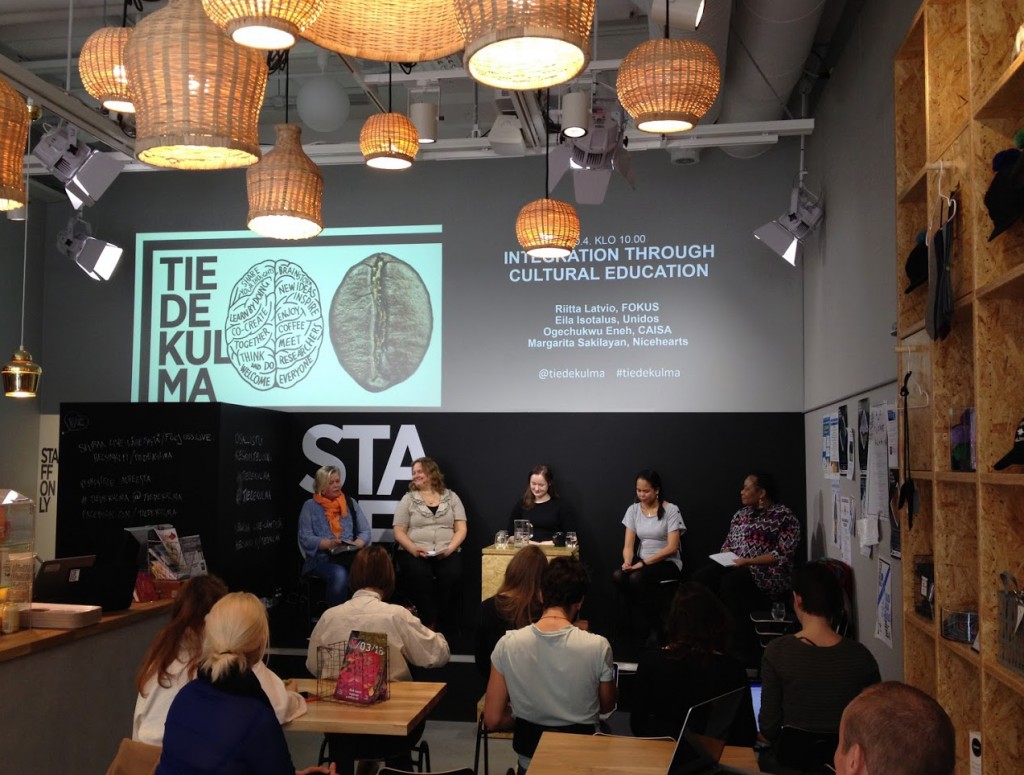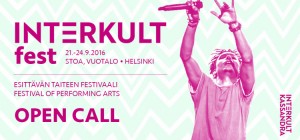
In the light of current events regarding the refugee crisis and the huge immigration wave to Finland from all corners of the globe the question on integration is stronger than ever.
How to make the newcomers feel welcomed and that they belong to the Finnish community? How do these respective organizations see integration through culture and education? In other words, what does it mean to be integrated for each one of them? Is there a possibility to make everyone feel equal despite their country of origin, skin tone, mother tongue and religion? What role does education through culture of both children and adults play in this challenge? What are the issues in promoting interculturalism (multiculturalism) especially when it comes to integration?
The panelists are representatives of the public as well as the private sector. The fruitful discussion focused on integration through cultural education.
Panelists:
Ogechukwu Eneh, cultural producer from Caisa:
- Mrs. Eneh is originally from Nigeria and came to Finland to study at the University of Helsinki approximately 30 years ago. She also worked at the University of Helsinki as a program manager for intercultural education.
- Caisa is a multicultural center part of City of Helsinki Cultural Office which promotes development of cultural diversity and interaction between people in Helsinki through festivals, workshops, etc.
Margarita Sakilayan, project coordinator and project worker of Nicehearts of Vantaa:
- Mrs. Sakilayan is originally from the Philippines and came to Finland around 10 years ago. She also has a master’s degree in Social Psychology from the University of Helsinki.
- Nicehearts of Vantaa organizes various One current project called “Neighbourhood mothers” animates active immigrant women, who have been living in Finland for a long time already, educate and support other immigrant women in Finland.
Riitta Latvio, Project coordinator and executive director of Kulttuuri- ja uskontofoorumi FOKUS:
- FOKUS builds bridges between cultures and religions via discussions, exhibitions, constructive dialogues, art and publications. Also, FOKUS promotes workshops during the World Interfaith Harmony Week, such as Islam and Fashion with the goal to educate children and teenager about the diversity of the Islam.
Eila Isotalus, Professional on intercultural competence development from Unidos:
- Unidos supports customers when differences between cultures confuse or cause troubles, also supports people to benefit from cultural diversity. Unidos provides training and tools to understand multiculturality and to act smoothly in a multicultural environment.
Date and time: April 20th, 2016 at 10 AM in Think Corner Aleksi
If you are interested in watching our exciting panel discussion, check out the video on UniTube. 🙂

